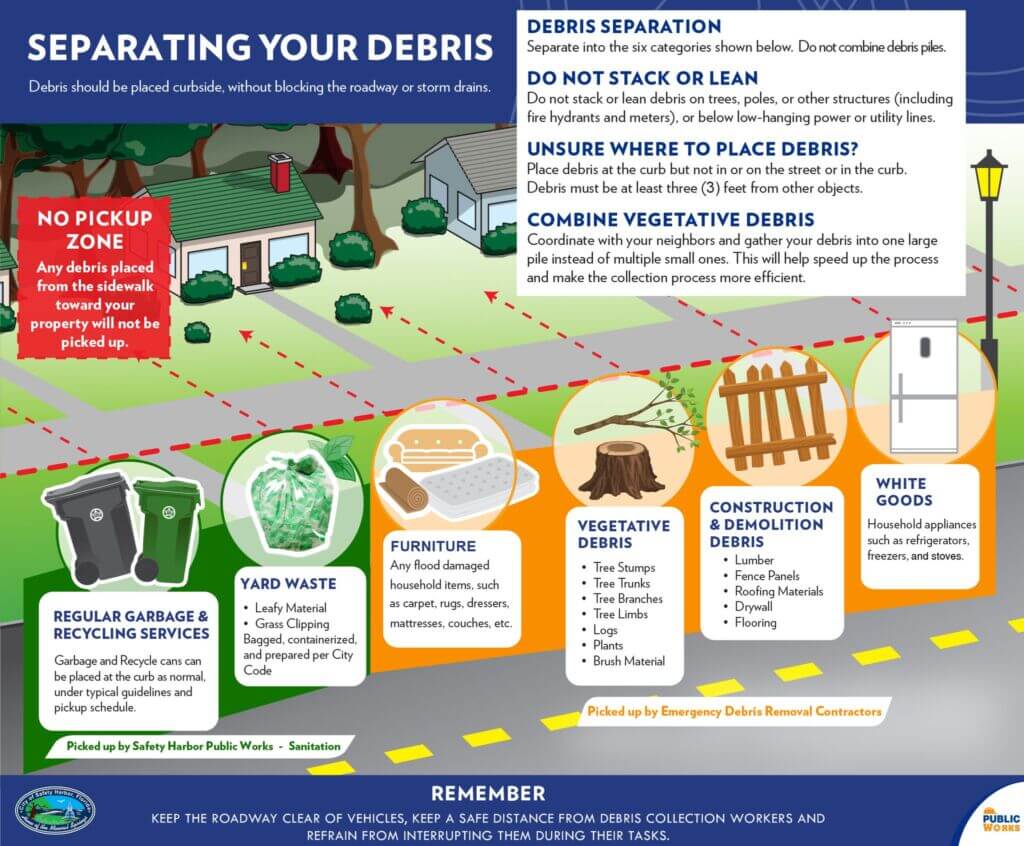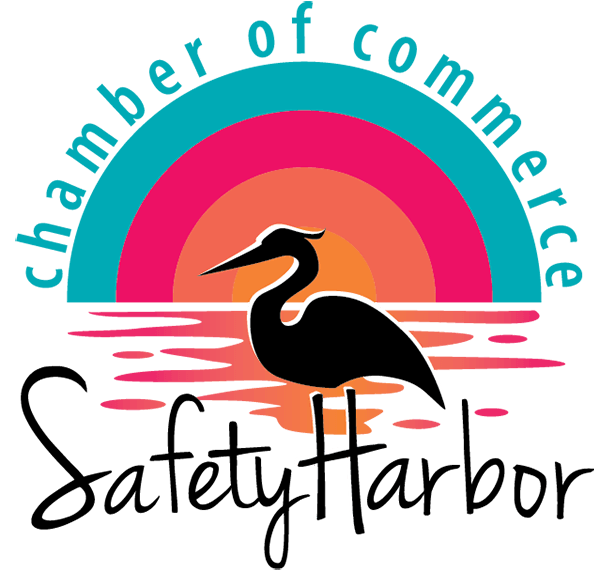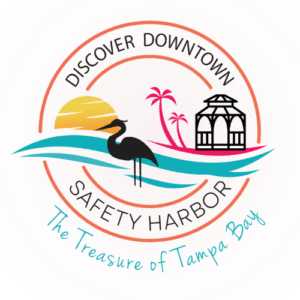Hurricane Resources
HOW TO RECEIVE ASSISTANCE
DISASTER RECOVERY CENTERS
Find the most updated list of SBA Disaster Recovery Center locations here. This should be your first stop as a business trying to obtain assistance.
DRCs serve as centralized locations where people can access various services and information related to disaster recovery, including:
- Information and Guidance
- Application Assistance
- Translation and Accessibility Services
- Status Updates
- Access to Disaster-related Resources
- Access to Computers and Phones
SBA and FEMA are both on site at some locations, so you can get services for both personal and business purposes. Bring identification, proof of residence, insurance information, and any documentation related to your disaster-related losses to facilitate the application process and ensure you receive the appropriate assistance.
Residents can register for FEMA assistance online at www.DisasterAssistance.gov, via the FEMA app, or by calling 1-800-621-FEMA (3362).
Pinellas County Disaster Recovery Center:
Enoch Davis Center
1111 18th Ave. S
St. Petersburg, FL 33705
Hours: 7 a.m.–7 p.m. Monday-Sunday
The Disaster Recovery Center in Pinellas County is open at the Enoch Davis Center to provide one-on-one help to Floridians affected by Hurricanes Milton, Helene and Debby.
Survivors do not need to visit a center to apply for assistance. Homeowners and renters are encouraged to apply online at DisasterAssistance.gov or by using the FEMA App. You may also apply by phone at 800-621-3362. If you choose to apply by phone, please understand wait times may be longer because of increased volume for multiple recent disasters. Lines are open every day and help is available in most languages. If you use a relay service, captioned telephone or other service, give FEMA your number for that service. For an accessible video on how to apply for assistance go to FEMA Accessible: Applying for Individual Assistance - YouTube.
For the latest information about Hurricane Milton recovery, visit fema.gov/disaster/4834. For Hurricane Helene, visit fema.gov/disaster/4828. For Hurricane Debby, visit fema.gov/disaster/4806. Follow FEMA on X at x.com/femaregion4 or on Facebook at facebook.com/fema.
FOOD ASSISTANCE
Feeding Tampa Bay is also offering food pantries and food distribution events in Pinellas County for residents impacted by Hurricane Helene. Text FTBFYI to 833-530-3663 for more information.
Pet food: Humane Society of Pinellas Pet Food Pantry is open 7 days a week from 11am - 5pm at the new shelter building located at 3040 State Road 590 in Clearwater. If anyone needs pet food please stop by! More resources from HSP: https://www.humanesocietyofpinellas.org/hsp-disaster-response/
CRISIS CLEANUP ASSISTANCE
Crisis Cleanup has activated the Hurricane Helene Cleanup Hotline: (844) 965-1386. This is for people who need help cleaning up damage from the Hurricane Helene and connects people with volunteers from local relief organizations, community groups and faith communities who may be able assist with jobs such as muck-outs (cleaning up), trees, tarp, and debris. All services are free, but service is not guaranteed. This hotline will remain open through Friday, Oct. 11, 2024.
FREE tarping service: http://BlueRoof.gov
DISASTER RECOVERY FOR SMALL BUSINESSES NOT NEEDING FEMA OR LOCAL EMERGENCY ASSISTANCE:
- Complete the Florida Business Disaster Assessment Survey at: https://floridadisaster.biz/Respond/BusinessDamageAssessmentsSurvey
- Apply to the Florida Small Business Emergency Bridge Loan at https://floridacommerce.my.site.com/RebuildFloridaBusinessLoanFund/s/
- Apply to SBA Disaster Assistance at https://www.sba.gov/funding-programs/disaster-assistance/hurricane-helene
Other resources:
- Pinellas Disaster Information and Assistance at https://pinellas.gov/emergency-assistance/
- Federal Disaster Assistance (FEMA) at https://www.disasterassistance.gov/
- SBDC Technical Assistance at https://floridasbdc.org/request-for-consulting/
Information on state-wide Business Recovery Resources can be found at www.floridadisaster.biz
SBA PHYSICAL DISASTER LOANS AND ECONOMIC INJURY DISASTER LOANS
Small Business Administration has activated Physical Disaster Loans and Economic Injury Disaster Loans for Businesses. Loans are available to businesses to repair or replace disaster-damaged property owned by the business, including real estate, inventories, supplies, machinery and equipment. Working capital loans have also been made available to help small businesses, small agricultural cooperatives, small businesses engaged in aquaculture, and most private, non-profit organizations of all sizes meet their ordinary and necessary financial obligations that cannot be met as a direct result of the disaster. These loans are intended to assist through the disaster recovery period. Apply here.
Here is a helpful Hurricane Milton Fact Sheet from the SBA.
Here is a flyer to walk you through the process of applying for disaster loans.
DISASTER UNEMPLOYMENT ASSISTANCE
FloridaCommerce announced that Disaster Unemployment Assistance (DUA) is available to businesses and residents whose employment or self-employment was lost or interrupted as a direct result of Hurricane Helene and are not eligible for regular state or federal Reemployment Assistance benefits. DUA is available to those who are ineligible to receive federal or state Reemployment Assistance benefits and the individual meets one of the following requirements:
DUA is available for weeks of unemployment beginning Sept. 29, 2024, through March 29, 2025, as long as the individual’s unemployment continues to be a result of the disaster in the designated-disaster areas. The deadline to submit a claim for DUA benefits is no later than Dec. 2, 2024.
To file a claim, go to www.FloridaJobs.org and select “File a Claim” or call 1-800-385-3920 (Monday through Friday from 8:00 a.m. to 5:00 p.m.). For DUA claims information, call 1-833-FL-APPLY (1-833-352-7759) to speak with a representative.
TEMPORARY SHELTER & STORM DAMAGE
If you need assistance with storm damage or temporary shelter, call Pinellas County's Citizen Information Center at 727-464-3333.
FEMA EMERGENCY LODGING ASSISTANCE
FEMA has activated lodging assistance for our area. Visit www.disasterassistance.gov to find lodging.
MENTAL HEALTH ASSISTANCE
If you’re in distress, trained counselors are available to talk via the Disaster Distress Helpline at 800-985-5990. The line is open 24 hours a day, with multilingual options. Text ‘talkwithus’ to 66746 (use ‘hablanos’ for Spanish). Deaf and hard of hearing ASL callers can text or call the helpline at 800-985-5590 using their preferred Relay provider.
ADDITIONAL RESOURCES:
- Hope Florida: Get help, give help
- Florida Division of Emergency Management Updates: floridadisaster.org/disaster-updates/storm-updates/
- State Assistance Information Line: Call 800-342-3557 for resources after Hurricane Helene
- Disaster Legal Hotline: 833-514-2940
- 2-1-1: Call for essential services
- Red Cross: 800-Red Cross (800-733-2767)
NAVIGATING THE FEMA PROCESS
Here is a helpful comprehensive document from FEMA that covers all of the ways it can help Florida families.
For Homeowners and Renters
- Check Eligibility
- Ensure your area has been declared a disaster zone.
- You must be a U.S. citizen, non-citizen national, or qualified alien.
- The damage must be to your primary residence, and FEMA aid cannot duplicate insurance coverage.
- Gather Essential Documents
- Have the following ready:
- Proof of identity (driver’s license, Social Security card)
- Proof of occupancy (lease agreement, utility bill)
- Home ownership documents (mortgage payment, deed)
- Insurance information (if applicable)
- Financial information (for determining eligibility for certain programs)
- Bank account details (for direct deposit)
- Register with FEMA
- You can apply in several ways:
- Online: Visit www.DisasterAssistance.gov
- Phone: Call 1-800-621-FEMA (1-800-621-3362)
- Mobile App: Download the FEMA app and apply through it.
- In-Person: Visit a Disaster Recovery Center (DRC) near you.
- Submit Your FEMA Application
- Provide detailed information on damages to your home and property.
- Indicate your insurance coverage (if any) and its limitations.
- Review your application for accuracy before submitting.
- Receive and save your FEMA registration number for reference.
- Schedule a FEMA Inspection
- A FEMA inspector will contact you to verify the damage.
- Be present during the inspection and point out any damage you want the inspector to note.
- Review and Track Your Application
- Log into your DisasterAssistance.gov account to check the status of your application.
- Alternatively, call FEMA’s toll-free number to inquire about the status.
- Receive FEMA Assistance
- If your application is approved, you will receive assistance for temporary housing, repairs, and replacement of essential items.
- Payment may come by direct deposit or check.
- Appeal if Necessary
- If denied or you disagree with the amount of assistance, file an appeal within 60 days.
- Provide additional documentation if needed.
For Businesses (Small Businesses and Nonprofits)
- Understand Business Eligibility
- Your business must be located in a declared disaster zone.
- You must show that your business has been physically or economically affected by the disaster.
- Gather Required Documents
Important documentation includes:
- Business tax returns (at least three years)
- Profit and loss statements
- Balance sheets
- Lease agreements or mortgage details for business property
- Business licenses and permits
- Insurance information
- Bank account details for direct deposit
- Apply for FEMA Assistance
- Businesses primarily receive help through the Small Business Administration (SBA), but you should still start with FEMA:
- Online: www.DisasterAssistance.gov
- Phone: 1-800-621-3362
- In-Person: Visit a Disaster Recovery Center (DRC).
- Complete the SBA Loan Application
- The SBA provides low-interest disaster loans for businesses. Even if you don’t want a loan, completing the application is crucial, as it can help determine if you’re eligible for further FEMA assistance.
- Types of SBA loans:
- Physical Disaster Loans: For repairs to real estate, machinery, equipment, inventory, etc.
- Economic Injury Disaster Loans (EIDL): For working capital to help small businesses recover from financial losses caused by the disaster.
- FEMA Inspection for Businesses
- Like with homes, FEMA or SBA may conduct an inspection of your business property to verify damage.
- Be available to provide access and documentation for review.
- Track Your Application
- Monitor your application by checking your SBA and FEMA status online or via phone.
- Use FEMA and SBA Funds
- SBA loans and FEMA grants for businesses should be used for repairing or replacing business property, inventory, or equipment and addressing financial losses.
- Keep detailed records of how the funds are used, as FEMA or SBA may conduct an audit.
- Explore Other Forms of Assistance
- FEMA also provides access to other recovery programs, including:
- Disaster Unemployment Assistance for affected employees.
- Crisis Counseling services.
- The SBA also offers Mitigation Assistance, which can provide extra funds to improve your business and reduce future disaster risks.
Appealing FEMA or SBA Decisions
- If you receive a denial from FEMA or the SBA, or feel the amount of assistance is insufficient, you can appeal within 60 days.
- Include all supporting documents that can prove your case, including additional proof of damage or financial loss.
By following these steps for both your home and business, you can navigate the FEMA process efficiently and receive the necessary aid for disaster recovery.
As always, keep an eye on disaster.pinellas.gov for up to date information and resources pertaining to our County, specifically After the Storm info.
Helpful information from the City of Safety Harbor on how to separate your debris:


